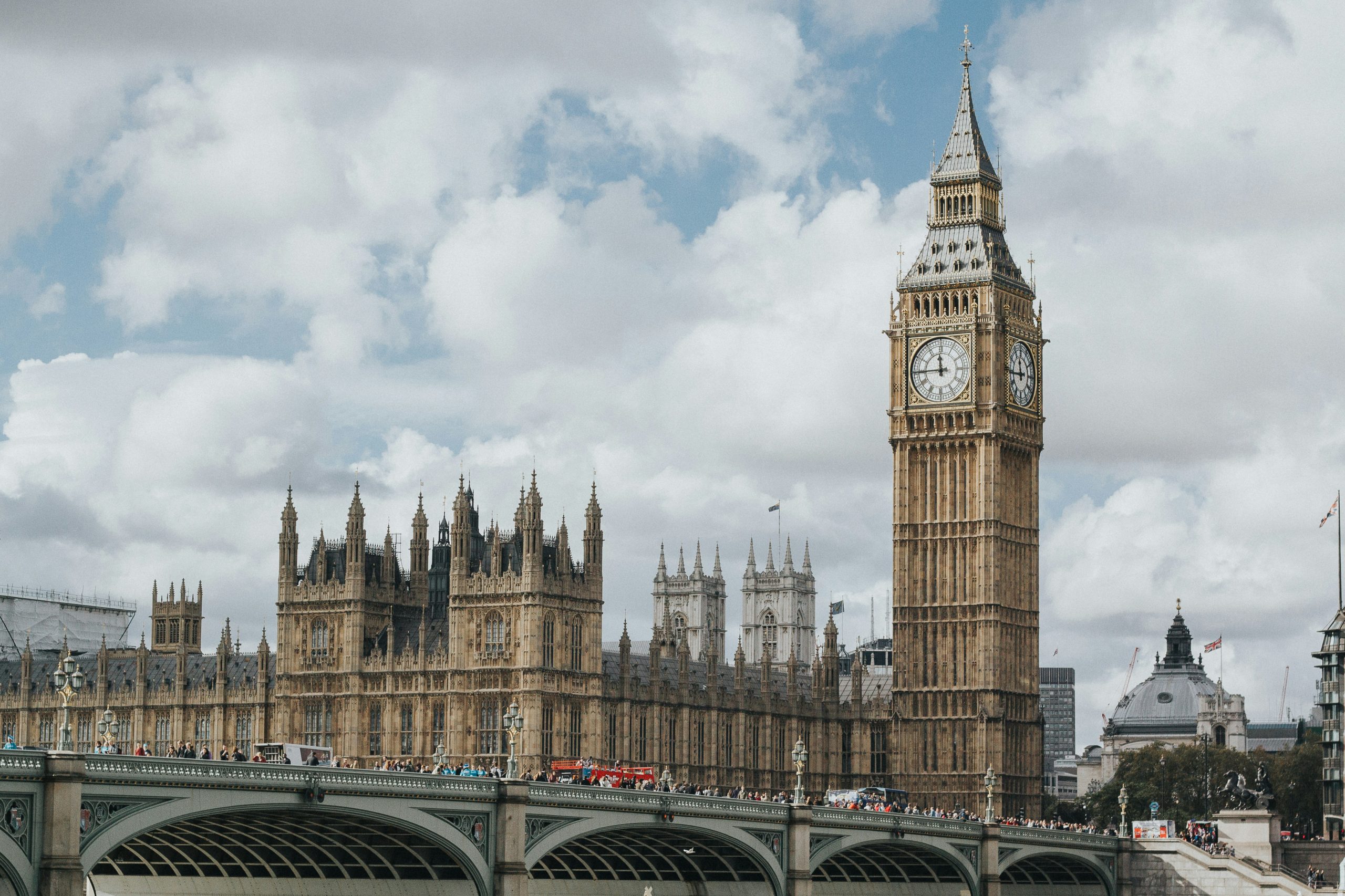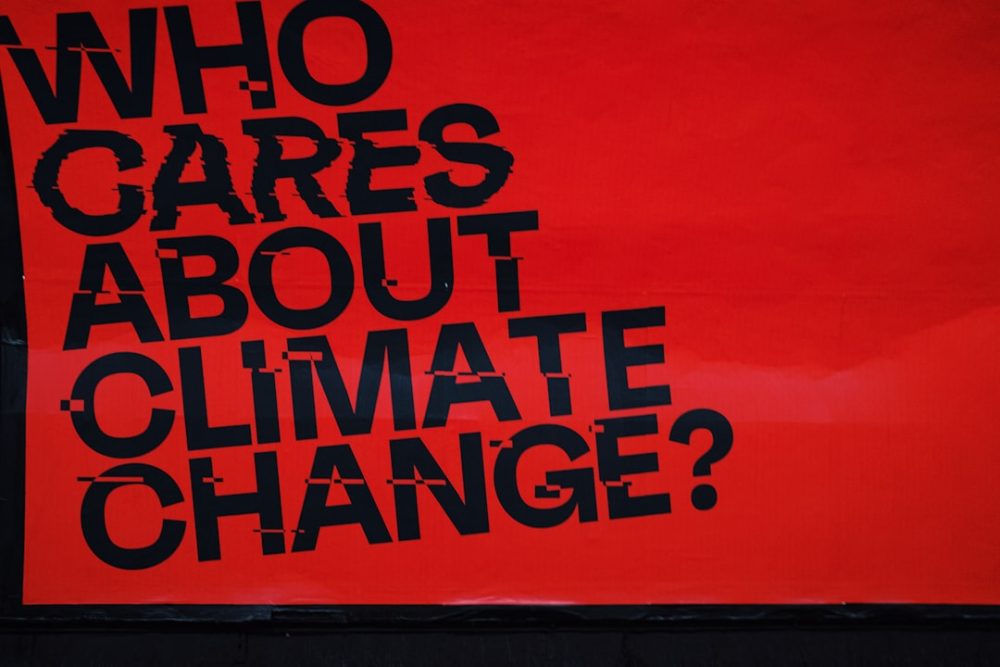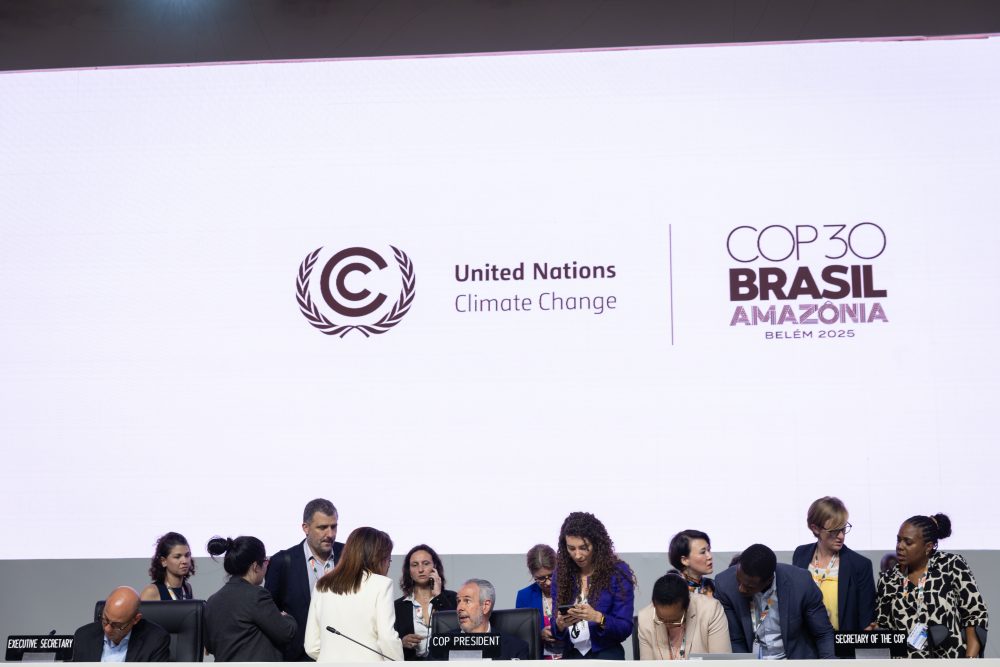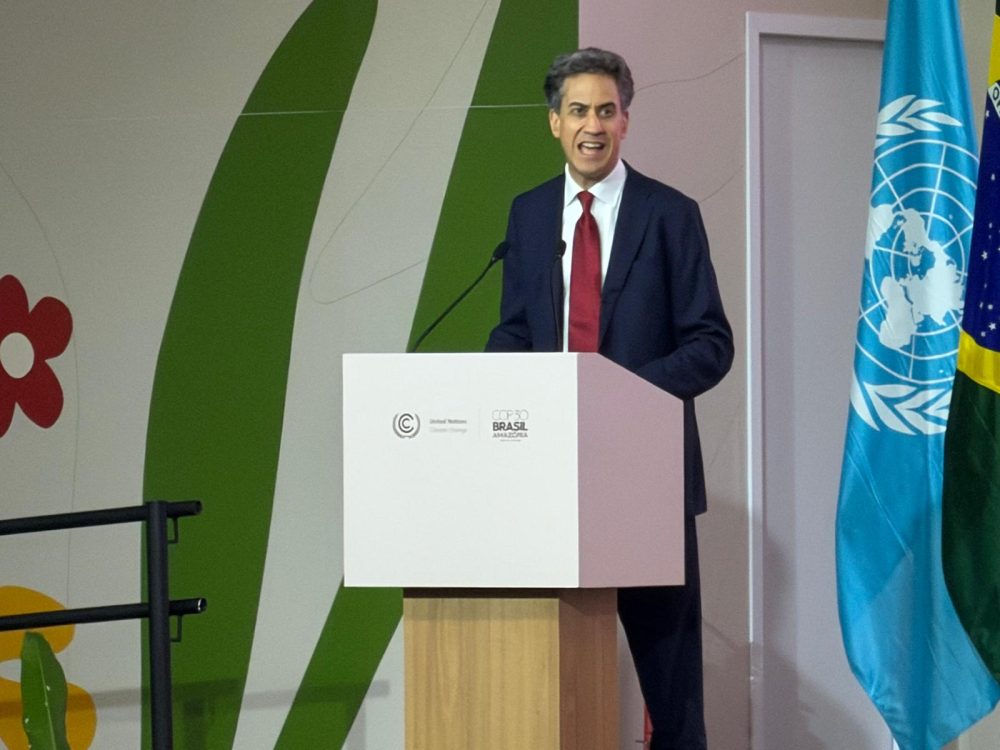Following the announcement by the Prime Minister at COP29 of the UK’s 2035 emissions reduction target of at least 81%, today the government submitted the UK’s full NDC document in advance of the global 10th February deadline.
Catherine Pettengell, Executive Director of Climate Action Network UK (CAN-UK) said:
“The NDC published today highlights the importance of the UK being on the front foot on climate action to ensure our economy is fit for the future, with affordable clean energy and decent jobs, and to benefit from health, nature, security, and prosperity.
With a comprehensive spending review well underway across government, this NDC must now be placed at the heart of every decision made by the Treasury, to ensure this government’s climate ambitions are turned into action. Generating finance from the largest polluters to pay for climate action at home and overseas is a key change that is needed to make this happen, and the spending review must deliver this.”
Key takeaways from the UK 2035 Nationally Determined Contribution:
- Fossil fuels: The NDC importantly recognises the importance of the COP28 Global Stocktake commitment to transition away from fossil fuels. It restates the UK’s commitment to clean power by 2030 and to net zero, and commits to consulting on ending new oil and gas licences.
- Science-based: The government asked for the advice of the independent Climate Change Committee, and followed this advice in setting the NDC target of at least 81%.
- Fairness: The target is within – but at the lower end of – the equity range of 71-109% set out by the independent Climate Change Committee. CAN-UK has consistently called for the UK and all high historical emitters to do their full fair share of the climate action needed. Going further and faster is not only the right and fair thing to do, but delivers benefits more quickly. In this respect the words “at least” are important, and we urge the government to take an ambitious approach to meeting and exceeding this target.
- Climate finance: The NDC reiterates the existing climate finance commitment that expires soon, but does not set out the vision or commitments of this new government for climate finance beyond next year. Billions can be generated from polluter pays mechanisms for climate action at home and overseas without unfairly costing UK households. We need to see a new approach to climate finance in the comprehensive spending review that stops draining the limited aid budget and instead generates new finance from those who have been profiting while causing harm.
- Nature: The science is clear, we cannot limit global temperature rise to 1.5°C without addressing biodiversity loss and restoring nature, and the UK NDC acknowledges these interlinkages and the importance of aligning climate and nature planning and implementation.
Isabella O’Dowd, WWF-UK’s head of climate policy said:
“The new UK climate plan is a step forward, and the Government is right to focus on restoring nature and cutting fossil fuels. But ambition alone won’t reduce emissions – we cannot afford major polluters like aviation to remain unchecked.
With COP30 on the horizon, the Government must prove it can turn promises into action. Rather than wasting money on costly white elephants, it should back lasting solutions at home and overseas – like insulating homes, investing in clean power, and keeping our precious forests standing. That’s how we create more jobs, ease the cost of living, and build a more secure future for the UK and the world.”
Sophie Powell, Chief Of UK Advocacy at Christian Aid said:
“Christian Aid welcomes the UK’s ambitious NDC, but Ministers must now back this with rapid action to cut emissions.
Without countries like the UK delivering the public finance that is owed to lower income countries facing the worst impacts, the world will not sufficiently tackle the climate crisis.
As a historic high emitter, the UK has a moral responsibility to deliver its fair share of this climate finance, and it can be done without hitting the average UK taxpayer.
The government should commit now to making big polluters – including fossil fuel companies making vast profits – pay for climate action.”
Melanie Coath, Principal Policy Officer – Climate Change, RSPB said:
“Tackling the nature and climate crises in tandem is critical to a safe future for our natural world and humanity. Today we’re delighted to see the UK Government recognise nature’s role in addressing climate change and that our Nationally Determined Contribution and National Biodiversity Strategy and Action Plan must work hand in hand. The UK Government must now bring about rapid action which embeds the role of nature and goes further and faster on actions to reduce emissions in the land sector if it is to meet these commitments.”
Chiara Liguori, Senior Climate Justice Policy Adviser, Oxfam GB said:
“The Government’s new UK climate plan is a step in the right direction. But they must go further – clarifying how they will deliver the UK’s low-carbon future and build a fairer and more equal world in the process.
That means setting out a clear plan to ensure workers, communities and people living in poverty are protected here in the UK as well as rapidly scaling up grant-based finance to properly support low-income countries on the frontlines of a climate crisis they did little to cause.”
Shruti Agarwal, Save the Children’s Senior Adviser for Climate Change and Sustainable Economies said:
“The UK’s emissions reduction target of 81% by 2035 is an encouraging move forward in protecting children now and in the future, but action on the climate crisis must not stop there.
In the coming months, the UK has a pivotal opportunity to go further by supporting lower-income countries with their climate action efforts. This means committing to significantly increase its international climate funding in the Spring Comprehensive Spending Review
Without helping lower-income countries with sufficient and affordable finance to tackle the climate crisis, the UK’s claims of leadership in this area remain hollow.
With the disappointing financial outcome at COP29 still reverberating around the globe, the UK must grab this opportunity to demonstrate it is indeed standing in solidarity with children and families on the frontline of the climate crisis.”
Francesca Rhodes, Senior Policy Adviser Climate and Gender, CARE International UK
”The UK’s increased ambition on reducing emissions is a step in the right direction. However, women and girls in the Global South are already facing the catastrophic consequences of climate change every day, and it is only getting worse. As the climate crisis intensifies, we urge the UK to deliver its fair share of climate finance and ensure women’s rights organisations are able to access the funding they desperately need.”
Selena Victor, Senior Director for Policy and Advocacy, Mercy Corps
“We welcome the UK’s ambitious target to reduce greenhouse gas emissions by at least 81% by 2035. However, the impacts of climate change have already reached crisis levels for many communities across the Global South. Alongside domestic efforts, the UK must urgently fulfil its current International Climate Finance commitments in full and commit to a significant increase for ICF4. The UK should prioritise quality as well as quantity, namely finance that is: grant-based, locally led, and achieves parity between adaptation and mitigation.”
Sam Perriman, Tearfund’s Public Policy Lead said:
“The raised ambition of the new UK climate plan is welcome, but it must be seen as the floor rather than the ceiling on what is needed. Communities living in poverty across the world are facing the daily reality of the climate crisis, and will need to see much higher ambition.
As a historically high emitter, the UK has an important role to play in delivering its fair share of climate finance as a matter of justice for those who have done the least to cause the climate crisis.”
Mark Barrell, Director of Advocacy, CBM UK (Global Disability Inclusion) said:
“The ambition of the UK NDC and plan is to be welcomed. This needs to be backed up by ensuring that those most affected by the climate crisis are supported to tackle the impacts, with the necessary finance to back this up. The lack of formal recognition of specific marginalised groups including disabled people, who make up 1 in 6 across the world and are some of the hardest hit by the crisis, is disappointing and a missed opportunity. It is important that the UK leaves no one behind in all its efforts.”
Ellie Kinney, Climate Advocacy Coordinator at the Conflict and Environment Observatory (CEOBS) said:
“The government’s ambitious target to reduce emissions is very welcome, as is the acknowledgement that ‘climate action must be an economy-wide target, covering all sectors’. However, whilst the government highlights the threat that climate change poses to UK security, the UK’s latest NDC fails to address the impact that the UK security sector is having on the climate crisis.
Militaries are responsible for an estimated 5.5% of global emissions and in the UK, the Ministry of Defence accounts for more than half of central government’s emissions. This means that reducing emissions from militaries is key to hitting the UK’s national net zero target, as well as securing a liveable future for all by limiting warming to 1.5°C. We urge the government to set clear net zero targets for the military sector, ensure that these are fully reflected in the UK’s NDCs and encourage other states to do the same.”



